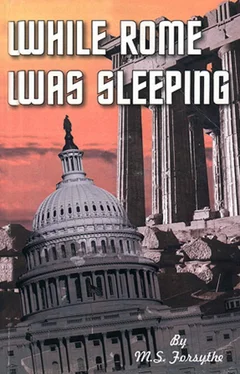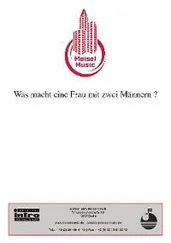“Are you coming back?” Andrew was suddenly eager to have some reinforcements.
“George’s funeral will be on Wednesday– perhaps after that. Don’t worry,” he said reassuringly, “Just be careful. There are some things developing here. Let me know about the Sunday call to the Center. Take care.”
“I will and you too,” Andrew told him.
Andrew placed a call to Jim Savalza and was told he was out until late afternoon. His curiosity about Coleman was rising, he pondered the reason he came to Seattle.
“I’ll do a little investigative work starting at the Olympic… maybe I’ll find a talkative desk clerk and ask some questions,” he said to no one in particular while pulling on his coat. “Or maybe I’ll just ask a few questions of the General himself.”
* * *
Neil had just concluded his conversation with Andrew when there was a knock on the door. His colleague, CIA Agent, Fred Wellman, stuck his head in.
“Do you have some time?” Wellman asked. “There’s something in Aunt Martha’s luggage you should see,” he said scratching his head as he led Neil toward the code room.
Over a period of years Fred Wellman and Neil Klein had developed a rapport that happened as the result of Neil finding himself at odds with the higher echelons in the State Department over the disposition of the POW/MIA question as it pertained to the proposed and final peace negotiations.
Fred Wellman had been the key CIA contact regarding the Chernakov defection. He had worked closely with Klein when word came through Kelshaw of the failure to rescue Paul Thayer and Pyotr Chernakov.
Because of the loss of CIA personnel missing from Site 85, Wellman’s office was also frustrated with governmental policy in delving deeper into the matter of prisoners captured in Laos. Wellman and Klein’s mutual tie became George Kelshaw.
Fred Wellman was a Montanan. Born in Butte in 1930 of Welsh parentage, he had grown up around hardy men and women whose lives held little luxury. His father had been an assayer for the Anaconda Copper Company. When the company ran into hard times in the late twenties and thirties, his father took the family savings and bought a small ranch in a valley outside of Butte near a town known as Whitehall. The ranch was never as successful as some of the larger spreads, but raising and selling beef cattle supplied the wherewithal for Fred to become college educated. He spent two years at the School of Mines in Butte and later on went to Missoula and the University of Montana where he graduated with honors.
He had a keen analytical mind and at one time had leaned toward a career in teaching in the mining industry specifically. But airplanes and flying had owned Fred since he was a youngster. Getting his pilot’s license at 17 only delayed his long time passion. With college behind him and after passing a rigorous physical for the United States Navy he was sent to Pensacola, Florida for flight training where he would embark on a career as a Naval Aviator.
During his time in the Navy he learned to fly everything from fixed wing to jets and helicopters. Later as a Lieutenant Commander he was assigned to Naval Intelligence and recruited by the CIA.
In 1965 while doing air reconnaissance over Laos, his plane was shot down and he bailed out over the Plain of Jars. Fortunately, Fred was quickly rescued by a Hmong General who would later become a key figure in the CIA’s mission in Laos.
By the time he returned to Saigon, he was well acquainted and convinced of the ‘Domino Theory’ and its implications for Southeast Asia.
Now at 50 he kept his medium build in shape. His dark hair was sprinkled with gray at the temples and his blue-gray eyes looked out through horn-rimmed glasses giving him a bookish appearance. He had quietly risen in the CIA because of his meticulous attention to detail. Decisions were made only after he had examined the facts thoroughly and learning all he could about a situation.
The Agency had relied heavily on Wellman’s analytical talent and intuition for second-guessing the Soviet and Chinese aspirations in Southeast Asia.
Inside the code room Wellman removed his coat and loosened his tie as he strode toward a partially glass-enclosed office where two technicians were busily punching data into computers. He shut the door and turning to Neil spoke cautiously, “We’ve matched a number of names that were listed as MIAs with names in the packet that are identified as POWs being held when Kelshaw acquired this information.
“It’s clear in looking at some of the names that the information must have come from Chernakov. It also coincides with the rumors of Americans being moved into China and into Soviet bloc countries. First analyses of the names indicate they were mostly pilots, technicians and some of our people,” Wellman said flatly, our , meaning intelligence personnel.
“There’s also a list of names of Americans that Chernakov interviewed in a prison camp in Kwangsi, China. They were to be moved out, but we’re unsure what the destination might have been.”
Neil shook his head as he looked over the list of names. “Too bad we didn’t have the opportunity to interview Chernakov; as it is he managed to provide us with some very important information. Five of these names were our guys from Site 85.”
“Do you think anyone is still alive?” asked one of the computer techs.
“Who knows… it would depend on who has them, if they were injured and what kind of treatment they got or are getting. From some of the information on interrogation techniques we received preliminarily from Chernakov, it might be better if they weren’t alive now,” Wellman responded.
“What else do you have for me?” Neil asked somberly.
“Some coded information that we’re working on that probably came originally from the Soviets, and,” Wellman drew a sharp breath and with a puzzled look, said cautiously, “This piece is where it gets peculiar. It’s obvious that it’s in some type of code from Kelshaw, but so far it’s not clear. I thought you might have an idea. There’s reference to (LRRH).”
Neil looked at the computer screen. (LRRH) and then, the phrase BBW has left the forest. He noted that LRRH had been enclosed by parenthesis. Neil studied for a moment then looking at Fred with mild amusement said, “I believe that BBW means Big Bad Wolf . ”
“Big Bad Wolf?” Wellman asked incredulously. “Come On!”
“Yes,” Neil answered, seriously now. “George and I had a running joke; when I began my assignment in the Office of Intelligence, he’d ring me up for lunch or whatever and would often refer to me as Little Red Riding Hood, telling me to watch out for the Big Bad Wolf on the way to our meeting place. Later, there were a few times when one or the other of us had to be careful about something and the admonition of watch out for the Big Bad Wolf would be used.
“Fred,” Neil said quietly, “George believed in simplicity; crazy as this may seem, I think he might have been using Little Red Riding Hood to tell us something. What do you remember about Little Red Riding Hood?”
“Other than the wolf eating Grandma, not much,” Fred responded.
“We need a copy of Little Red Riding Hood.”
Wellman moved aside as Neil reached for the desk phone. He was looking at Neil in stunned silence as Neil called his secretary Nancy to locate the story for them.
“Say again! I thought you asked me to locate the story of Little Red Riding Hood!”
“I did, Nancy, please, as soon as you can, find it.”
“All right, I’ll do my best,” she said as she left to carry out her errand.
“Come on, Fred, humor me. I haven’t gone over the edge here,” Neil assured his colleague. “If I’m right, George gave us information in a way that no one else would decipher.”
Читать дальше












